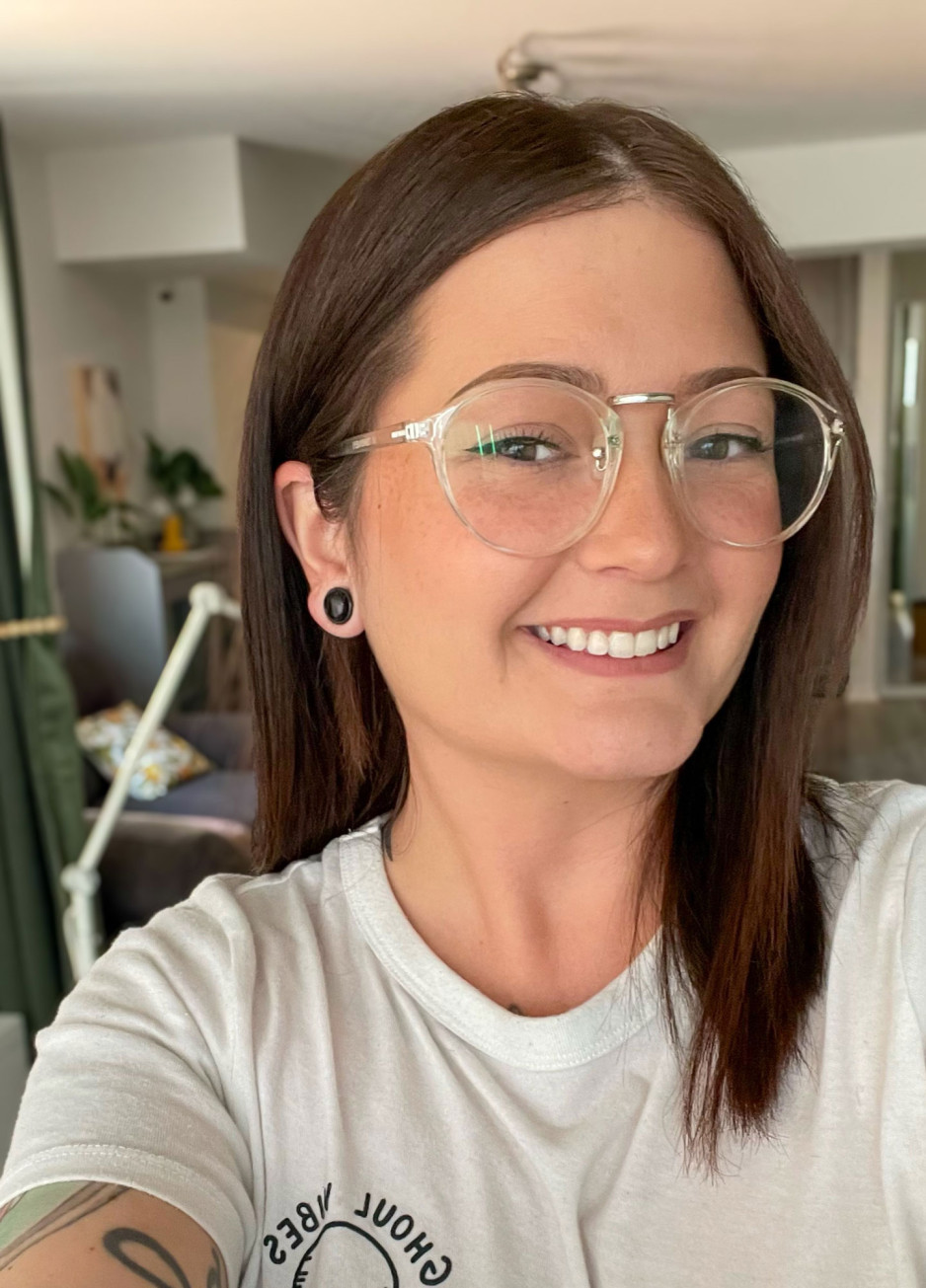From nightmare to normal: Sniffing out better care
When Rebecca Bruzzese lost her sense of smell and taste after a bout of COVID-19, it was disconcerting. But when it returned a week later, it was downright debilitating.
For over a year, Rebecca experienced what is called parosmia – a disorder that causes a distorted sense of smell, turning normal odors into a repulsive stench, and often creating disturbing, even frightening, phantom smells.
“Coffee was the worst,” says Rebecca. “It smelled like hot garbage.”
Ground beef frying on the stove smelled like “excrement in a pan” and tomatoes had a sharp acidic rancid smell.
The 32-year-old was so repulsed by food she lost 30 pounds. Causing even more havoc were the phantom smells – cigarette smoke and natural gas – which triggered great anxiety. She refers to them as scent hallucinations.
“Not having a reliable sense of smell was very disorienting and anxiety provoking,” says Bruzzese. “The natural gas smell was the worst. I live in a condo and would contact the building manager to investigate. I was borderline neurotic for a couple of months.”
Today, a normal sense of smell has returned to a relieved Bruzzese – restored by novel treatment being trialed at St. Joseph’s Health Care London (St. Joseph’s) by Dr. Leigh Sowerby, a surgeon with the Otolaryngology- Head and Neck Program and scientist with Lawson Research Institute. He is working in collaboration with anesthesiologists Dr. Geoff Bellingham, Medical Director of St. Joseph’s Pain Management Program, and Dr. Mohammad Misurati.
The randomized controlled trial is testing stellate ganglion block (SGB) – a procedure involving injecting a local anesthetic into the stellate ganglion, a collection of nerves in the neck. The stellate ganglion controls sympathetic signals to the head, neck, arms and part of the chest.
In an earlier survey by the study team, patient reports of temporarily blocking these sympathetic signals through an anesthetic injection showed promise in alleviating the distorted sense of smell. This initial study, conducted online and published in The Journal of Laryngology & Otology, involved patients who had experienced various treatment options for post-COVID parosmia, including SGB, to gather data about their experiences and outcomes.
The follow-up randomized clinical trial at St. Joseph’s with 44 patients is the next step and seeks to establish the efficacy of the SGB in treating post-COVID parosmia.
“The assumption for a lot of these patients is that there is nothing we can do,” explains Sowerby. “If the findings are positive, we’re hoping it will help advocate for more access to the procedure.”
It will also confirm the effect is not placebo, which will shed light on an intriguing neuronal pathway for olfaction (sense of smell), he adds.
“It’s an intriguing study because, based on our understanding of pathophysiology, the stellate ganglion should have no effect on olfaction,” he says. “Initial reports of benefit were met with great skepticism. We hope to validate the benefit.”
Patients who fit the study criteria undergo full olfactory testing before and after receiving SGB. They are randomized to receive either saline (placebo) or lidocaine in a stellate ganglion block. It is a double-blind study, which means both the investigators and patients do not know what each individual receives.
Currently, 14 patients have been enrolled in the study with recruitment ongoing. Participants will be followed for up to one year.
Parosmia is an uncommon condition, but more prevalent since the arrival of COVID-19. It can be caused by bacterial or viral infections, head trauma, neurological conditions, surgeries, psychiatric conditions, toxic chemicals and medications.
Bruzzese, who came down with COVID-19 in February 2023, received her injection at the end of March 2024.
“Within two weeks I was mostly recovered. What Dr. Sowerby is doing is incredibly important. Being able to recognize smells is something we take for granted, until you can’t.”
Sowerby agrees and sees the fallout for people daily. It’s why he has his nose to the ground to improve care for those with smell disorders.
“For vision and hearing, you can simulate the loss of those senses, but it’s very hard to get an idea what it’s like without smell until you experience it,” he says. “We live our lives with scents and smells always in the background. They evoke memories, are a significant source of joy and are signals to our surroundings. For some people I see in my practice, it’s also critical to their livelihoods – sommeliers, gas fitters, chefs. We need to do better in assessing and treating people, and this trial is part of that effort.”
Is this trial for you?
Canadian residents experiencing distorted smell for more than six months after a COVID-19 infection may be eligible to take part in a study at St. Joseph’s Health Care London testing stellate ganglion blocks. For more information, email @email

